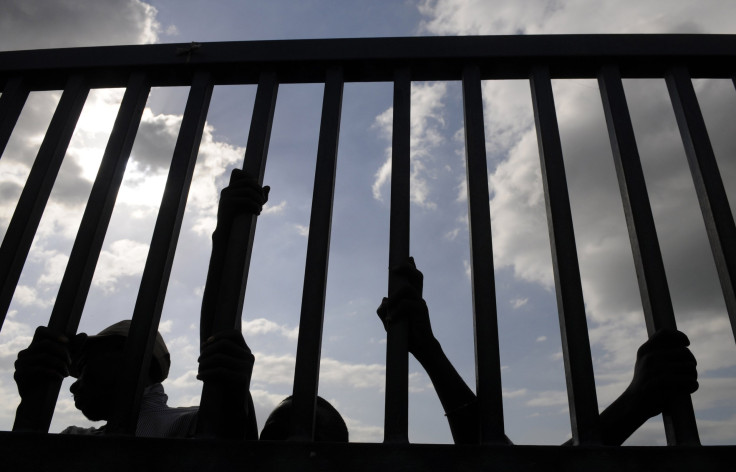Haiti Migration Crisis: Bahamas Navy Arrests Haitian Immigrants For Trying To Enter Country

The Royal Bahamas Defence Force stopped a boat over the weekend carrying an estimated 100 Haitian migrants and handed the passengers to immigration authorities, Caribbean 360 reported Monday. Nearly 1,000 migrants have been arrested so far this year for trying to enter the Bahamas illegally.
The Defence Force, which is the Bahamas’ navy, stopped the boat, a sloop, west of Ragged Island in the southern Bahamas. It was carrying 117 men, 23 women and three children, the Jamaica Observer reported. They were brought to Coral Harbor Base, a military base on New Providence island, to await investigation.
Illegal immigrants were “an annoying, consistent and expensive problem,” Bahamas Foreign Minister Fred Mitchell said in April. “Instead of spending money on ports, roads or airports, we have to spend on trying to deport illegal immigrants to their homes,” he said.
In July, three Haitians in the Bahamas had their legal work permits revoked and were recommended for deportation after being convicted and sentenced for harboring illegal immigrants. Authorities discovered the trio hiding 15 undocumented immigrants in their home, Haiti Libre reported. As of July 16, 242 out of 338 migrants detained at a single detention center in the Bahamas were Haitian nationals.
Illegal #Haitian immigrants in The #Bahamas should not be treated like this! - @Jacquiecharles @wsvn @UN @amnesty pic.twitter.com/6OtbiNkVsc
— rasdeniro ™ (@rasdeniro) December 26, 2014Not all those seeking to enter the Bahamas were from Haiti. The Royal Bahamas Defence Force last week apprehended eight Cubans traveling in a boat in the Gulf Stream.
Still, Haitians remain the population most likely to immigrate in large numbers, the New York Times reported in January. The Bahamas has also come under criticism in the past year for a new immigration policy that requires everyone to have a passport, which opponents have said unfairly targets Haitian immigrants.
Haiti is one of the poorest countries in the world and the poorest in the Americas. It has struggled to recover from a magnitude-7.0 earthquake that struck the country in 2010 and devastated its infrastructure and economy. More than 6 million Haitians, or 59 percent of the population, live on less than $2.44 per day, the World Bank estimates.
© Copyright IBTimes 2024. All rights reserved.






















